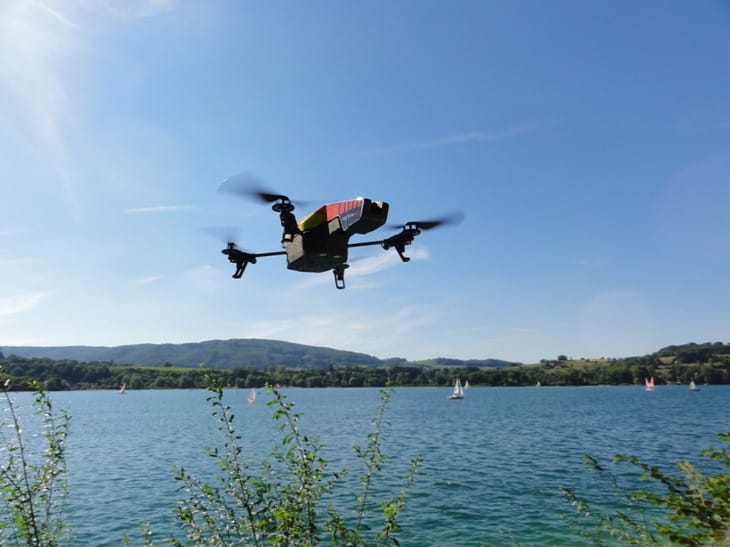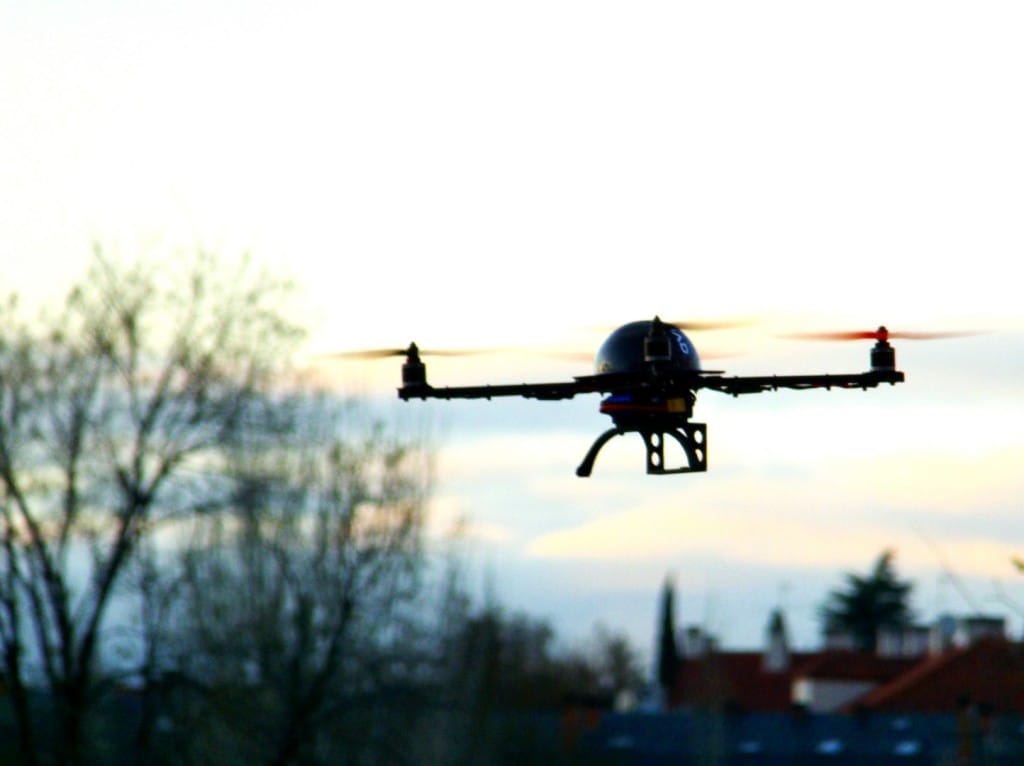
Do I Need Drone Insurance?
Drones are cool. Really cool.Drive-through-the-night-sky-as-fireworks-explode-around-you-like-the-fourth-of-july cool. And popular too. Drones (also called UAVs) have seen demand explode 400% just in 2014 alone, and it sounds like they are going to be used for more than just personal recreation.
Munich Re, one of the world’s largest insurance companies, recently suggested that drones use could become common practice for almost 40% of businesses in the near future, and seemingly every day we see new commercial uses for the rotored-robots spring up, whether it is through Amazon’s Prime Air, drone photography companies, or even using drones for security.
Yes drones are cool, popular, and here to stay. But, as with all things we seem to invent, things get more complicated when you consider their legal implications. Yes, that’s right. Leave it to the insurance guys to take the fun out of everything. We admit that this might not be what you want to hear, but there is prophetic truth to the maxim “it’s all fun and games until someone loses an eye.” Or, more aptly put to insurance/risk management terms, “it’s all fun and games until someone loses $2 million.”
The Case for Drone Insurance – Liability

Liability is when our legal system holds you responsible for something, and is single-handedly responsible for the largest claims payouts in property and casualty insurance. The typical limits on a homeowner’s policy might be $300,000 for the building, and $2,000,000 for the liability. With this coverage, the stakes are high, and screwing it up will almost always force you into bankruptcy. Generally speaking, liability insurance is engaged when you do something carelessly (the legal term is “negligently”) and get sued for an incredible amount of money. The limit comes in, pays your legal defence costs, and then satisfies any legal judgements made against you.
But what does this have to do with drones? There are two primary concerns. The first, and most simple, is that drones, while opening us up to an unlimited world of aerial delight, also expose us to an unlimited world of aerial liability. Just think of it. People do incredibly careless things without five pound whirlwind machines that can reach blistering speed.
Just quick peruse of Google shows us exactly why people should be careful when operating a drone. Here is an article about a drone almost hitting a passenger plane. Here is a (admittedly hilarious) video of a man attaching a machine gun to his quadcopter.
And drones in general can just be dangerous, even if used somewhat normally. Their blades can easily cut flesh, as Enrique Iglesias discovered this summer, and they can also be piloted into hard-to-see obstacles like powerlines.
Of course, the added risk is only part of the equation. The other issue is that most contemporary insurance policies specifically exclude drones from their liability coverage. Now, every insurance policy is different, but generally speaking liability policies explicitly state they do not cover the use of aircraft (which, for those of you who are particular about this sort of thing, is the classification of a drone according to Transport Canada). This means that your policy does not apply to cover your negligence, provided your negligence is somehow connected to the operation of a drone. That adds an extra layer of risk to an already risky activity.
Businesses who use drones can find themselves in the same boat. Many of the wordings in commercial general liability policies (a typical form of coverage for a business) also explicitly exclude the operation of aircraft. In this context the issue can get slightly more complex for drone insurance, simply because there are so many different forms of business policies (whereas for a personal policy there are only two or three types that you can typically expect to see).
This combination of already high risk and complete absence of coverage makes drone operation a particularly perilous endeavor. Beyond the financial side of things, drone operators must also consider legislative rules – the Transport Canada website has some requirements and guidelines which can be found on their website.
Acquiring Drone Insurance

Although insurance can’t really help with the whole government regulation bit (although, as an aside, there are insurance products to address that risk, stay tuned for an upcoming blog on bylaw coverage), it is possible to arrange for insurance that will cover your use of a drone. However, before you ever look to add new coverage, it is important to make sure you understand what you currently have. Review your home (or commercial general liability) policy and see what your wordings say – is the use of an aircraft explicitly excluded? If you have an insurance broker, this will make the process easier, as often direct writers will only send you declaration pages of your policy (without the full wordings, definitions and exclusions).
If you do determine that drone use is barred, its time to evaluate your risk. No one knows your tolerance for risk and financial position better than you, so it is important to think hard about the cost vs reward proposition of a tailored insurance policy that will cover drone use. Again, this is another situation where a broker is advantageous – you can talk to them about whether or not they feel a special policy is worth it for you. In most cases, if the drone is for personal use, it probably does not make sense to purchase drone insurance.
If the ultimate decision is to get coverage, it will typically be provided under an “Aviation Policy”. This policy effectively provides drone insurance, and will cover most of its uses. Again, this is subject to the specific conditions of your policy, so a close inspection is necessary. The price of this policy will necessarily vary according to circumstance, but some of the factors that will be considered include: the remote operator’s experience, the number of hours a drone is used, whether any piloting courses have been taken, where the drone will be operated (populated vs. rural vs. beside an airport), and finally what your claim history is like.
Beyond coverage for the actual drone itself, you can also add coverage for personal & advertising injury for the operation of a drone, as well as products and completed operations coverage. Professional liability coverage might also apply, depending on your business operations. Sadly, at this time physical damage coverage is not available for drones. If you would like help securing coverage for your drones, or have more specific questions, you can always contact us here.
In conclusion, drones are a fun, popular, and potentially dangerous tool for the modern man. Because they are excluded from most liability insurance policies, extra care must be taken to ensure that no one gets hurt. This is especially true for those who use a drone recreationally, as it is unlikely that proper insurance coverage will be available. So please, be careful. Operating a drone can be quite a delight, but as we said, “Its all fun and games until someone loses $2,000,000”.
One thought on Do I Need Drone Insurance?
Leave a Reply
You Might Want to Read
July 23, 2024
Does my car insurance cover a cracked windshield?
June 5, 2024
Welcome All Time Insurance Brokers to the McDougall Insurance Team!
November 2, 2023
Welcome M.B. Kouri Insurance Brokers to the McDougall Insurance Team!




etizazafzal
very good article thanks for sharing energetic information. i really appreciate u . you need to work more to promote your website. I read blog on daily base.